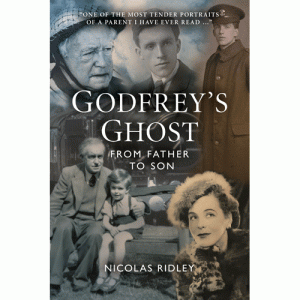
A lot of my time last week was,
happily, dominated by things bookish and literary. The now annual
Taunton Literary Festival, miraculously organised almost
single-handedly by Lionel Ward, proprietor of our local independent
book shop Brendon Books, began last week and I went along to one of
the first events – an appearance by David Mitchell (not the
comedian) at the Castle Hotel on Tuesday morning. Succumbing to the
relentless twitter campaign prior to its publication I read The
Bone Clocks and thoroughly
enjoyed most of it. It has several intriguing storylines and
characters, is well-paced and easy to read and promised, if not a
profound conclusion, then at least a memorable twist or unexpected
outcome. But around three-quarters of the way through the book the
supernatural, time-travelling, fantasy element of the story that was
always lurking in the background suddenly kicked in with a vengeance
and I was immediately and completely lost. Lost and uninterested I'm
afraid. So much so that I really didn't much care how it all ended.
Reviews of The Bone Clocks have
been predictably favourable but the only notice that rang true for me
was Kate Saunders' in The Literary Review and I quote :
“The
publisher's blurb describes 'The Bone Clocks' as a 'metaphysical
thriller' and I don't know what this means, unless it's 'Harry Potter
for grown-ups'. Sorry if this sounds unkind, but grown-up novels that
deal in supernatural jiggery-pokery are hard to take seriously as
works of art, so it's best to just lighten up. 'Cloud Atlas' missed
the Booker in 2004 but it did win the Richard and Judy Best Read of
the Year and it was made into a film – which only goes to show how
brilliantly entertaining David Mitchell's writing can be. 'The Bone
Clocks' is the kind of delicious, intricate nonsense that cries out
to be read at leisure beside a fire”.
So
I was interested to find out whether Mr.Mitchell would be able to
elucidate on the more fanciful aspects of his book and explain what
it's all about. Unfortunately though he just read a passage from the
book (which wouldn't have had any meaning if you didn't vaguely know
the plot) and then answered questions from the ever-so-slightly
fawning audience. Mr.Mitchell was terribly polite, humble and well,
very nice. But it also all seemed a little lightweight and
insubstantial. I was hoping I might come away with the intention of
re-reading The
Bone Clocks to
discover what I might have missed first time around but with all the
other books I just have to read I don't think there's time.
And
on the subject of book acquisitions, the last couple of weeks have
been particularly fruitful especially as some of them were birthday
presents. Here's my haul :
Legend
Of A Suicide by
David Vann (£2.49 Phoenix Books, Crewkerne)
The
Disappearance
by Derek Marlow (£1.25 Phoenix Books, Crewkerne)
Hard
Travellin' by
Kenneth Allsop (£1.25 Phoenix Books, Crewkerne)
Empires
of The Dead by
David Crane
Walking
The Woods and the Water by
Nick Hunt
A
Spy Among Friends by
Ben MacIntyre
Modernity
Britain : A Shake of The Dice 1959-62 by
David Kynaston
Ulverton
by
Adam Thorpe
Travels
With Epicurus by
Daniel Klein
The
Galapagos by
Henry Nicholls
Christmas
1914 by
John Hudson
Whoops!
By
John Lanchester
The
week ended with a real highlight – a talk by Nicolas Ridley, son of
Arnold Ridley (Godfrey from Dad's Army)
about Arnold's life with special emphasis on his experiences as a
soldier in the First World War. It took place at the Museum of
Somerset in Taunton as part of their season of events to commemorate
the beginning of the Great War. Nicolas Ridley has written a
wonderful book – Godfrey's Ghost : From Father To Son,
which is really an extended letter to Nicolas' son Christopher that
is intended to ensure that he appreciates the full life and character
of the grandfather he didn't know. Doddery old Godfrey was but a
small, if not insignificant, episode in Arnold Ridley's life and
Nicolas has done a marvellous job in expanding our knowledge and
appreciation of this colourful man's rich, and turbulent, life.
Bizarrely enough I first heard of the book when DJ Andrew Weatherall
recommended it in an interview he gave. I sought it out, read it and
was entranced, both by the book's content and its style. Nicolas
Ridley was a thoroughly charming, amusing speaker who talked
affectionately about his father and, refreshingly, quite critically
about the ways in which the horrors of the Great War were being
'celebrated' in some quarters. Definitely one of the best volumes of
biography/memoir that I've read for a while. Perhaps a future
Slightly Foxed edition?
No comments:
Post a Comment